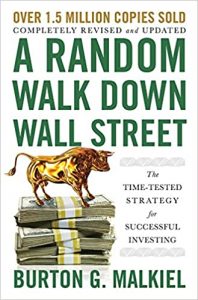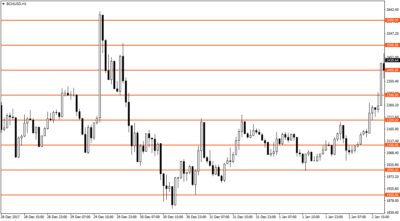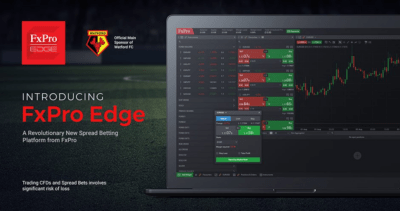Содержание

Some stock exchanges allow professional traders and broker-dealers to become a market maker by going through a certification process. The difference between the ask and bid price is only $0.05, but the average daily trading volume for XYZ might be more than 6 million shares. If a single market maker were to cover all of those trades and make $0.05 off each one, they’d earn more than $300,000 every day. As noted above, market makers provide trading services for investors who participate in the securities market. We’ve highlighted some of the most popular ones in different parts of the world.

The opposite is true, as well, because any shares the market maker can’t immediately sell will help fulfill sell orders that will come in later. Market maker refers to a firm or an individual that engages in two-sided markets of a given security. It means that it provides bids and asks in tandem with the market size of each security.
The market-maker spread is the difference between the price at which a market-maker is willing to buy a security and the price at which it is willing to sell the security. The market-maker spread is effectively the bid-ask spread that market makers are willing to commit to. It is the difference between the bid and the ask price posted by the market maker for security. Supposing that equal amounts of buy and sell orders arrive and the price never changes, this is the amount that the market maker will gain on each round trip.
Full-Service Brokers
So, if a market maker is buying shares on average for a few pennies less than it sells them for, with enough volume it generates a significant amount of income. When a market maker receives a buy order, it will immediately sell shares from its inventory at its quoted price to fulfill the order. If it receives a sell order, it buys shares at its quoted price and adds them to its inventory. It will take either side of a trade, even if it doesn’t have the other side lined up right away to complete the transaction. With advancements in technology and the internet, online brokerage firms have experienced an explosion of growth. These discount brokers allow investors to trade at a lower cost, but there’s a catch; investors don’t receive the personalized investment advice that’s offered by full-service brokers.
The main function of the market maker is to reduce volatility and facilitate price discovery in the stock market by providing a limited trading range on the security they make a market in. The market maker will offer up-to-date prices at which they’re willing to buy or sell and the amounts of the security it’s willing to buy or sell at those prices. Let’s dive into how market makers operate, why they’re important to the stock market, and how they make money. A market maker is a firm or individual that stands ready to buy or sell a security. Investors may take the ability to buy and sell securities whenever they want for granted.
As for disadvantages, they’re primarily applicable to advanced traders. Each market has its own market makers, which means that each broker uses a quote given by one or several market makers when offering prices to clients. A market maker, anticipating this behaviour, sets the price at $1.10. Because of the high number of market orders, the market price may rise, let’s say, to $1.15, and because of demand, fall back to $1.12.
- Chip Stapleton is a Series 7 and Series 66 license holder, CFA Level 1 exam holder, and currently holds a Life, Accident, and Health License in Indiana.
- Occasionally, overseeing organisations such as the Federal Reserve of the US carry out investigations into the way market traders make money.
- The primary role of a broker is to deliver orders from a customer to the stock exchange and provide all the back office and support functions necessary to facilitate those transactions.
Read our editorial process to learn more about how we fact-check and keep our content accurate, reliable, and trustworthy. Ken Griffin is founder, chief executive officer and 85% owner of the hedge fund Citadel—the largest market maker in the United States. Investopedia requires writers to use primary sources to support their work. These include white papers, government data, original reporting, and interviews with industry experts. We also reference original research from other reputable publishers where appropriate. You can learn more about the standards we follow in producing accurate, unbiased content in oureditorial policy.
Who Are Market Makers and What Do They Do?
Their prices are the ones displayed on the Stock Exchange Automated Quotation system and it is they who generally deal with brokers buying or selling stock on behalf of clients. A market marker is an individual or broker-dealer that has registered with an exchange to buy and sell shares of given stocks directly from other market participants. Financial exchanges rely on market makers to provide orderly trading of the underlying stocks, options, and other products listed on their platforms. ECNs, on the other hand, work with respect to market fluctuations. They study the shares and the prices at which they are being traded in the market. The network sets the best bid/ask price for the stocks depending on their study.

A market maker participates in the securities market by providing trading services for investors and boosting liquidity in the market. They specifically provide bids and offers for a particular security in addition to its market size. Market makers typically work for large brokerage houses that profit off of the difference between the bid and ask spread. Most foreign exchange trading firms are market makers, as are many banks. The foreign exchange market maker both buys foreign currency from clients and then sells it to other clients. They derive income from the price differentials on such trades, as well as for the service of providing liquidity, reducing transaction costs, and facilitating trade.
It depends on the different classes of market makers and where they’re employed. Once again, there are regulations in place that prohibit such activity. Collusion and conspiracy with the aim to make speculative profits aren’t tolerated. Jump Trading, the publicity-shy market maker, uses best-in-class technology and combines sophisticated quantitative research.
These market makers are required to maintain two-sided markets during exchange hours and are obligated to buy and sell at their displayed bids and offers. They typically do not receive the trading advantages a specialist does, but they do get some, such as the ability to naked short a stock, i.e., selling it without borrowing it. In most situations, only official market makers are permitted to engage in naked shorting. Changes to the rules in the 2000s and 2010s have explicitly banned naked shorting by options market makers. A number of market makers operate and compete with each other within securities exchanges to attract the business of investors through setting the most competitive bid and ask offers. In some cases, exchanges like the NYSE use a specialist system where a specialist is the sole market maker who makes all the bids and asks that are visible to the market.
Financial InstitutionsFinancial institutions refer to those organizations which provide business services and products related to financial or monetary transactions to their clients. Some of these are banks, NBFCs, investment companies, brokerage firms, insurance companies and trust corporations. Market makers are useful because they are always investing in ai healthcare; analysts offer 2 stocks to buy ready to buy and sell as long as the investor is willing to pay a specific price. Market makers essentially act as wholesalers by buying and selling securities to satisfy the market—the prices they set reflect market supply and demand. When the demand for a security is low, and supply is high, the price of the security will be low.
Self-Directed IRAs and the Risk of Fraud
In addition to this, AMMs issue governance tokens to LPs as well as traders. As its name implies, a governance token allows the holder to have voting rights on issues relating to the governance and development of the AMM protocol. Market makers compete for customer order flow by displaying buy and sell quotations for a guaranteed number of shares. The wider the spread, the more potential earnings an MM can make, but competition among MMs and other market actors can keep spreads tight. This website is using a security service to protect itself from online attacks. There are several actions that could trigger this block including submitting a certain word or phrase, a SQL command or malformed data.

A full-service broker is a broker that provides a large variety of services to its clients including research and advice, retirement planning, and more. Market makers help to ensure there’s enough volume of trading so trades can be done seamlessly. They profit from the bid-ask spread, and they benefit the market by adding liquidity. Max Boonen, co-founder of crypto market maker B2C2, said in an interview that his company was exploring purchasing some of Genesis’ outstanding loans at a discount. Market maker refers to a company or an individual that engages in two-sided markets of a given security.
Today, there’s hundreds—if not thousands—of market makers, both human and digital, providing services to various stock exchanges. These can range from large banks or broker-dealers making markets in thousands of securities to individuals or niche firms that concentrate in market making just a few different stocks. Other U.S. exchanges, most prominently the NASDAQ stock exchange, employ several competing official market makers in a security.
Company
Brokerage houses are the most common types of market makers, providing purchase and sale solutions for investors. As the name suggests, market makers make the price and contribute volume to an exchange’s order book. A market maker places orders https://forexbitcoin.info/ with prices that differ from the current market price. Market takers work with the price given to them and take volume off of the order book. The advantages of the market maker concept are exciting for smaller accounts and private investors.
The market makers buy shares at a lower price and sell them at a higher cost. The higher this difference or spread is, the more is the earning. Thus, they are believed to be manipulating the price, sometimes as per their interest. Market makers earn money on the bid-ask spread because they transact so much volume.
Market makers encourage market liquidity by standing ready to buy and sell securities at any time of day. So far, it’s amassed a catalog of Wall Street heavyweights as contributors, including speedy trading shop Hudson River Trading, market maker Virtu Financial, and stock exchange runner MEMX. London is home to one of the largest stock exchange groups in Europe.
Retail
The market-making individuals make the market, and their absence might break or lead to the market’s collapse. Thus, they play a significant role in increasing the efficiency of the financial marketplace. Without market makers, far fewer trades would happen, and companies would have more limited access to capital. The specialist must also set the opening price for the stock each morning, which can differ from the previous day’s closing price based on after-hours news and events. The specialist determines the correct market price based on supply and demand.
How Much Does a Market Maker Earn?
Market makers earn a living by having investors or traders buy securities where MMs offer them for sale and having them sell securities where MMs are willing to buy. This list of market makers includes Nomura Securities, Flow Traders, and Optiver. Unofficial market makers are free to operate on order driven markets or, indeed, on the LSE. They do not have the obligation to always be making a two-way price, but they do not have the advantage that everyone must deal with them either. Some traders speculate that market makers have signals to work together with each other.
The other big way market makers earn money is through taking on inventory. When there is a supply or demand imbalance in a stock, market makers will often accumulate a large position in an equity. When there is panic selling following a negative news announcement, for example, market makers are often the people buying as the crowd rushes to get out of the stock.
Once the market maker receives an order from a buyer, they immediately sell off their position of shares from their own inventory. Market makers are compensated for the risk of holding assets because a security’s value may decline between its purchase and sale to another buyer. On the one hand, banks do benefit from making markets in conventional spot and forward foreign exchange contracts. There’s also a degree of intermediation in volatility-related products. However, banks can’t accurately forecast changes in exchange rates, and often enough, they barely earn anything from market making compared to other sources of revenue. Their ultimate goal isn’t to use individual traders but rather to ensure balanced market conditions for all.
